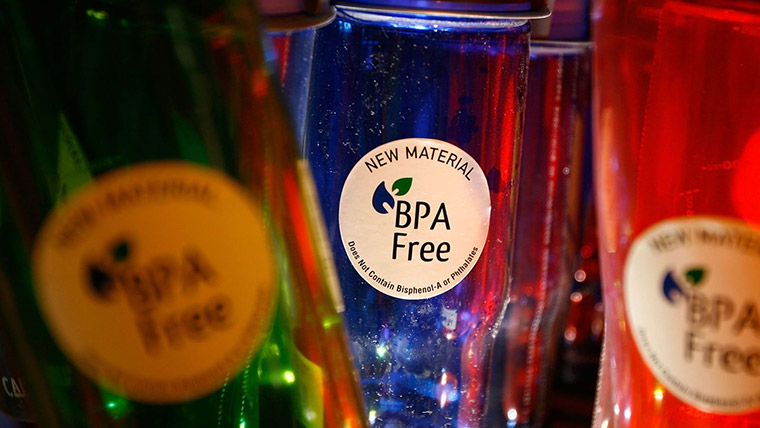



-free-sertifikasi.jpg)
Bisphenol A (BPA) is a chemical substance used in some food contact materials and was first approved by the Food and Drug Administration (FDA) of the United States Department of Health in the early 1960 years. In recent years, however, many concerns have been raised about the safety of the compound. To alleviate these concerns, the FDA published a report in 2008 that determined that Bisphenol A (BPA) was safe in materials that come into contact with foodstuffs.

In the following years, reports were published that these findings were correct. Nevertheless, concerns remain and it is desirable to make an arrangement that prohibits the use of said compound in foods, additives and packaging.
According to the food contact directive 10 / 2010 published in the European Union, Bisphenol A (BPA) for food contact materials is subject to a migration limitation of 0.6 mg / kg. Again, the 321 / 2011 directive prohibits the use of polycarbonate in the production of baby bottles.
In 2016, in accordance with the opinion of the European Food Safety Authority (EFSA), a request was made from the World Trade Organization to reduce the migration of Bisphenol A (BPA) to 0,05 mg / kg for plastic food contact materials. In addition, this migration limit was requested to be applied to varnishes and coatings.
Today, analytical tests and analyzes are performed in advanced laboratories to determine the compatibility of Bisphenol A (BPA) compound with the prescribed migration limits. In addition, in order to prove that the materials and materials produced by the enterprises meet the latest legal requirements, certain migration tests are carried out and many test programs are applied including measuring the remaining content of the substance in contact with all kinds of foodstuffs. As a result of these tests and analyzes, Bisphenol A (BPA) Free Certificate is issued to the requesting companies.
Today, the major products containing Bisphenol A (BPA) are: products packaged in plastic containers, canned foods, bathroom and toilet articles, feminine hygiene products, thermal printer receipts, CDs and DVDs, home electronics, eyeglass lenses, sports equipment and dental fillings. However, as a result of the concerns and efforts described above, bisphenol-S (BPS) or bisphenol-F (BPF) compounds are now being used in many BPA-containing products. However, it is known that even small concentrations of BPS and BPF can impair the function of human cells in a similar manner to BPA. Therefore, bottles or containers that do not contain BPA are not considered an adequate solution. Plastic products labeled with recycling numbers 3 and 7, or products coded as “PC kod, possibly contain BPA, BPS or BPF compounds.
In short, the main source of Bisphenol A (BPA) compound exposure is nutrition. However, not all of this chemical substance suddenly enters the foodstuff inside the container. Only a small amount is released and passes into food or liquids. For example, a recent study found that BPA levels in urine decreased by 66 in participants who avoided packaged food for three days.
In this respect, it is important for human health that the manufacturers of foodstuffs and protective containers avoid this compound in production. Businesses that meet the criteria and limitations set forth in the relevant legal regulations and standards are required to prove their efforts. Bisphenol A (BPA) Free Certificate demand.
SCIENCEalso provides Bisphenol A (BPA) free certification services within the scope of numerous laboratory services. Thanks to these tests, enterprises have received more effective, high performance and quality testing services and safe, fast and uninterrupted serves.
Bisphenol A (BPA) free certificate services provided within the scope of laboratory services SCIENCEprovides other testing services.
First, it is determined whether the organization meets the mandatory requirements of the standard and whether to proceed to the next stage.
It is checked whether necessary procedures and audits have been developed and your institution's readiness for evaluation is reviewed.
The findings that arise in the first two stages are evaluated and after all corrective actions are reviewed, document preparation is started.
To get an appointment, to get more detailed information or to request an evaluation, you can ask us to fill in our form and reach you.